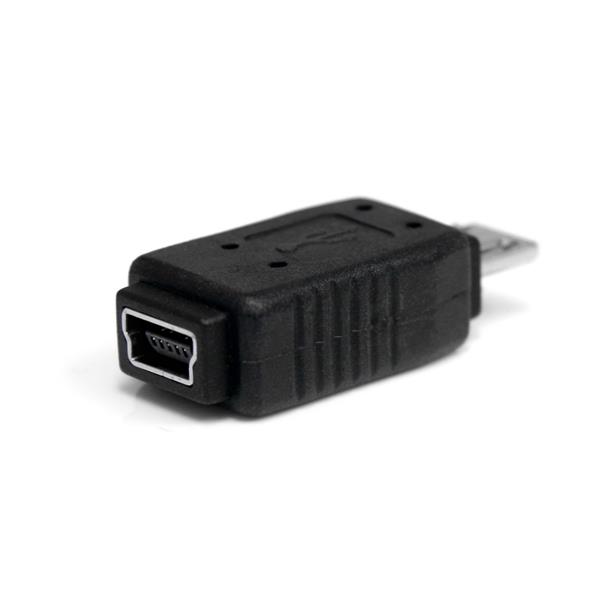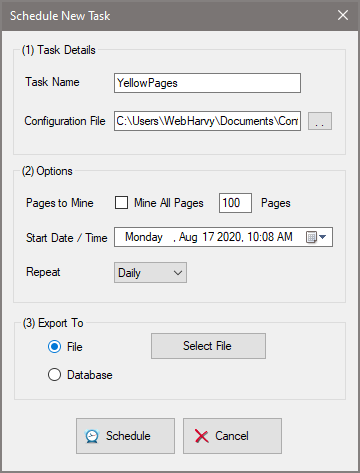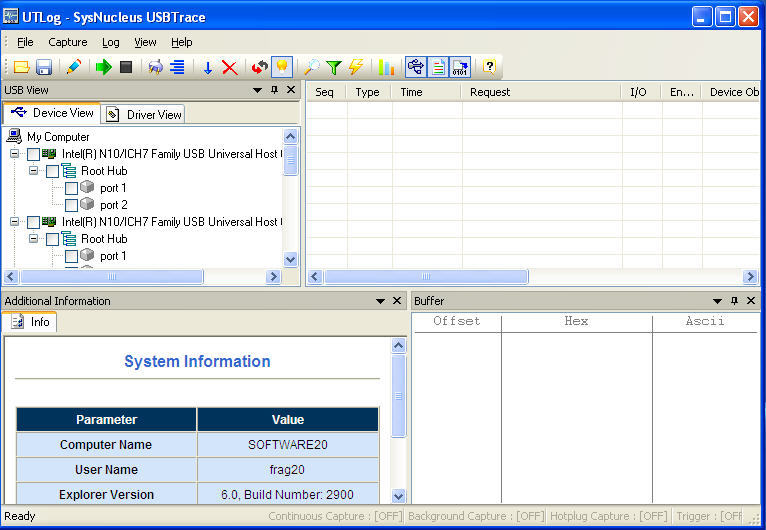Sysnucleus USB Devices Driver
Press representatives can contact us directly at:
Email: contact@sysnucleus.com
Sysnucleus Usb Devices Driver Vga
USB™ multi-port adapters with Ethernet connectivity and some Ethernet adapters are not compatible at this time (due to IC design). Click here for more information. The display driver does not support Mac® computers with the M1 processor at this time, contact your computer manufacturer to verify if your computer supports the display driver. USB device Firmware controls USB ID in nanoVNA, which may confound driver installation and firmware updating. Debugging may be facilitated by recording related Windows activity. Hi John Generally USB drivers are supplied as part of the Windows 10 Operating System, sometimes, your PC manufacturer will supply specific USB hub drivers. Open Device Manager (accessible by right clicking your Start Button) At the bottom of the hardware section list is the USB devices section, expand that.
USBDeviceShare v3.0 released
Jan 27, 2014 : USBDeviceShare v3.0 released:
Changes in this release are:

- If you're using Windows, download this Kindle Fire driver: kindlefireusbdriver.zip. After downloading the file, extract the contents into a new folder and double-click the FireDevices ABD drivers file. Proceed through the installation wizard screens to install the driver. Step 3: Install Android Studio.
- In the top left pane (USB View) the USB devices and drivers present in your system are displayed. Devices are shown in tree format as per USB connection hierarchy. Towards the right of this pane is where the captured USB transactions are displayed (Log View).
- Updated Server and Client drivers to work with latest Windows versions - Windows 8/8.1
- Supports USB 3.0 device sharing
- Updated UI
- Server device stub driver is loaded for USB devices only when initiated by Server application. Prevents automatic loading of stub driver for newly plugged devices.
- Completely removes stub driver during uninstallation
- Fixed issue with connection initiation from Client/Server by remote computer name
You may download the 15 days free evaluation copy from http://www.sysnucleus.com/usbshare/usbshare_download.html
USBDeviceShare v2.2 released, Supports Callback connections
June 25, 2012 : USBDeviceShare v2.2 released:
Changes in this release are:
- Supports Callback connections. Server can now initiate connection with client.
- Per device licensing mechanism
- Fixed stability issues related to USB device stub driver (server)
- USBDeviceShare Client do not need administrative privileges to run
- Fixed issue related to Windows 2000 & Hyper V server (server)
- Option to minimize client window to system tray
- Closing Server window minimizes it to system tray
You may download the 15 days free evaluation copy from http://www.sysnucleus.com/usbshare/usbshare_download.html
USBDeviceShare v2.0.1 released, Supports USB 3.0 devices

January 20, 2011 : USBDeviceShare v2.0.1 released:
The new features in this release are:
Sysnucleus Usb Devices Drivers
- Support for sharing and remotely accessing USB 3.0 devices over network.
- Interoperability between 32 bit and 64 bit editions of USBDeviceShare. 32 bit client can now remotely access devices shared at a 64 bit server and vice versa.
You can download the evaluation version from http://www.sysnucleus.com/usbshare/usbshare_download.html
USBDeviceShare v1.5 released
April 8, 2010 : USBDeviceShare v1.5 released:
The new features in this release are:
- Added inactivity timeout feature for devices shared at server
- Fixed bug with sharing/nick naming/auto connecting identical devices
- Added option to auto start client with Windows startup
- Minor bug fixes
You can download the evaluation version from http://www.sysnucleus.com/usbshare/usbshare_download.html
USBDeviceShare v1.3 released
November 16, 2009 : USBDeviceShare v1.3 released:
The new features in this release are:
- Added password based security for server
- Updated status icons for USB device nodes in client and server UI
- Added status bar message indicators for various operations
- Server UI now displays server name and listening port number
You can download the evaluation version from http://www.sysnucleus.com/usbshare/usbshare_download.html
USBDeviceShare v1.2 released
September 1, 2009 : USBDeviceShare v1.2 released:
The new features in this release are:
Server

- Automatic sharing of devices
- Automatic sharing of newly plugged-in devices
- Device properties window
- Deny sharing of specified devices
- IP Filter to deny/allow specified clients to connect with the server
- No need to install device driver for devices at server
- Auto start server with Windows startup
Client
- Automatic connection to unavailable devices when they become available
General
- Polling between server and client to monitor connection loss
- Fixed issue of udsstub driver getting loaded for all driver-less devices in the system
You can download the evaluation version from http://www.sysnucleus.com/usbshare/usbshare_download.html
USBDeviceShare v1.1 released
June 6, 2009 : USBDeviceShare v1.1 released:
The new features in this release are:
- Updated user interface
- Server minimizes to tray
- Bug fixes and stability improvements based on user feedback
- Updated help file
You can download the evaluation version from http://www.sysnucleus.com/usbshare/usbshare_download.html
SysNucleus releases USBDeviceShare

March 6, 2009 : SysNucleus releases USBDeviceShare:
We are happy to let you know about the release of a new software from SysNucleus : USBDeviceShare. USBDeviceShare lets you share USB devices and access them remotely over network/internet. For more details, please visit http://www.sysnucleus.com/usbshare/index.html.
You can download an evaluation version from http://www.sysnucleus.com/usbshare/usbshare_download.html
The software consists of server and client components. USBDeviceShare server must be installed where devices are locally present. Client must be installed where devices need to be remotely plugged in over network/internet.